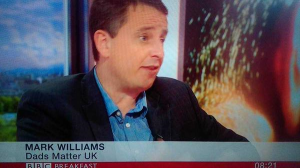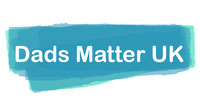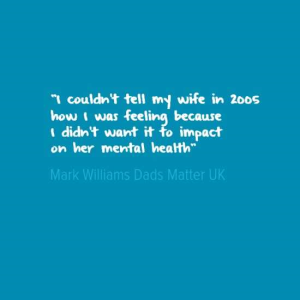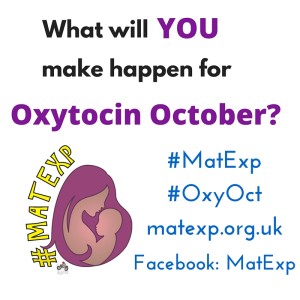As part of Oxytocin October (#OxyOct) I have been revisiting the first set of blog posts we put up calling for people to ACT in certain areas of maternity care. One of these was Time to Act for Dads & Partners, which included a mention of Mark Williams‘ work in this area.
Mark Williams is the founder of a new organisation called Dads Matter UK (Perinatal Mental Health for Fathers). He also founded Fathers Reaching Out, Youngness and Independent Mental Health Campaigners.
Father’s Reaching Out was set up in 2011 to raise awareness surrounding the detrimental impact that postnatal depression (PND) has on both fathers and equally families as a whole. Dads Matters UK aims to raise awareness of perinatal mental health, and educate every dad before the birth about birth trauma and PTSD for men.
We are delighted that Mark has written this blog post for #MatExp as part of #OxyOct.
______________________________________________
Depression can hit up to around one in five fathers by the time the child reaches adolescence. In a published report in 2015, it states that at least 10% of fathers will suffer with postnatal depression, which can include the birth itself and up to a year after. Fathers can develop lots of complications in this period, and this can influence their daily lives as well as affect their role within their family unit. It can impact heavily on their relationships, financial stability alongside lifestyle and emotional states. Emotional problems and psychological health needs are crucial elements to postnatal depression in fathers and need to be addressed. Fathers tend to get forgotten at this important and life changing event of having a baby, with mother and child being the centre of care delivery and rightly so, but we must remember there is a father there too. Fathers often get pushed aside which can result in feelings of isolation, anxiety and confusion at a time when they to need help.
Dads Matter UK is suggesting that the health service needs to develop a process for the screening and detecting of postnatal depression in fathers. As many fathers, the figures suggest, suffer with anxiety post birth of the child. The birth of a new baby can cause problems such as poor sleep, anxiety and stress. This can lead to problems within the relationship and fundamental communication processes within that relationship. After speaking to hundreds of fathers we are primarily concerned with the health of the father and their families. We feel that postnatal depression in fathers is equally significant and requires important consideration when implementing strategies and screening tools for postnatal depression. Fathers suffering with depression can feel increasingly pushed out and unsure of their role within the family thus affecting the bonding and attachment process between father and child.
Screening is important for men, as they are less likely to seek help and support. Particularly, in relation to their health problems. Due to the associated stigma towards mental health and its associated issues, young fathers are even more likely to be at risk and not seek the help they need. Men are often reluctant to admit that they may have an emotional problem or are unlikely to admit to feeling out of control. If this area of health is not addressed adequately this could lead to further breakdowns in the family structure and have long lasting devastating outcomes for our children.
We must remember that fathers can also suffer from PTSD at the birth. Post-traumatic Stress Disorder can occur following a life-threatening event like military combat, natural disasters, terrorist incidents, serious accidents, or violent personal assaults like rape. Most survivors of trauma return to normal given a little time. However, some people have stress reactions that don’t go away on their own, or may even get worse over time. These individuals may develop PTSD.
People who suffer from PTSD often suffer from nightmares, flashbacks, difficulty sleeping, and feeling emotionally numb. These symptoms can significantly impair a person’s daily life. As we know many suffer in silence and let post traumatic stress disorder effect all parts of their daily living. My own nightmares were what if my son had died and the thought of my wife being pregnant in the past did give me so much anxiety that at the time I didn’t know why.
PTSD is marked by clear physical and psychological symptoms. It often has symptoms like depression, substance abuse, problems of memory and cognition, and other physical and mental health problems. The disorder is also associated with difficulties in social or family life, including occupational instability, marital problems, family discord, and difficulties in parenting.
The “invisible wounds” of birth trauma-related PTSD affect not only the father or the family member, but also those around him or her. We must remember it effects everyone and education is needed to prepare the family for what may happen during and after the labour.
We run the risk of letting our fathers down at a time when we need to build strong families and communities for our future generations. Identifying the right support and providing improved health care in relation to Perinatal Mental Health is a top priority, so let’s ensure our health services have the right tools and services available to help and support fathers in relation to their partners’ postnatal depression. When screening fathers we must be mindful to remember that individuals are unique and have developed different styles of coping. It is important to respect the individual, involve them in their care and offer support to them as a person rather than just treat the illness.
Mark Williams, 2015.





recovery coach
30 April 2016 at 7:49 am (8 years ago)Thanks for finally writing about >Dads Matter – Maternity Experience
<Liked it!